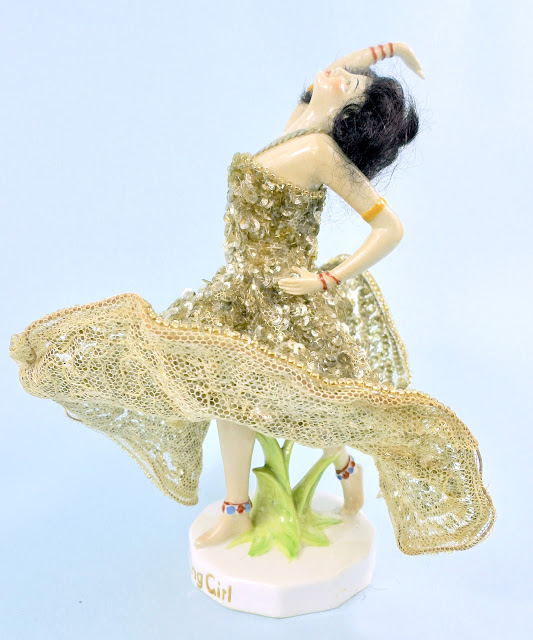You are the dancing queen
Young and sweet
Only seventeen
Dancing queen
Feel the beat from the tambourine, oh yeah
Dancing Queen, 1976, ABBA
According to the caption on her base, she is the "Dancing Girl," rather than queen, but she certainly appears to be having the time of her life. Seven inches tall, this is a half or pincushion doll on her original base. The two pieces were clearly meant to go together (the half doll is incised on her base "19174" and under the base is the matching number "19175"). I don't know whether the extravagant dress is original, but it is old and beautifully made of sequined net trimmed in tiny seed beads; the flared skirt has fine wire around the hem to give it shape. Underneath she has a muslin half slip with lace trim similar to the factory made garments found on antique dolls.

Clearly meant to be a maiden from the Middle East, she has a black mohair wig, an olive complexion, and is well-accessorized with a variety of molded bangles and baubles. Her face is beautifully painted.

Joining the two pieces is some sort of fibrous substance, perhaps wood, but both pieces have matching sew holes so I wonder whether there might have originally been a fabric pincushion between them.



No comments:
Post a Comment